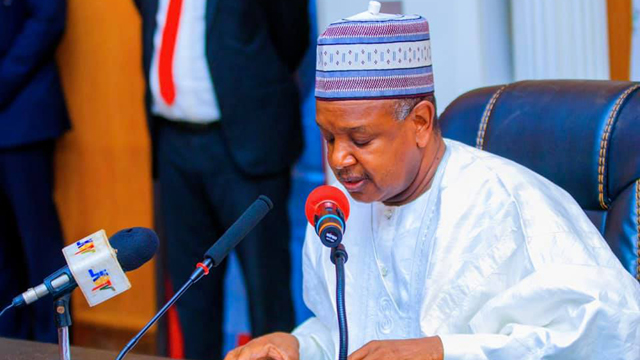The federal government has reiterated its commitment to strengthening Nigeria’s health system by institutionalising nutrition budget tagging at the national and sub-national levels.
Speaking at the opening of a four-day Training of Trainers workshop on Nutrition Budget Tagging in Abuja, Acting Permanent Secretary of the Federal Ministry of Budget and Economic Planning, Dr. Sampson Ebimaro, said the initiative is designed to improve transparency, accountability, and efficiency in resource allocation for nutrition programmes. The training has the theme: Towards a National Picture: Advancing Nutrition Financing through Budget Tagging.
Dr. Ebimaro, who represented the Minister of Budget and Economic Planning, Senator Atiku Bagudu, noted that despite the growing recognition of nutrition as a key driver of human health and socio-economic development, challenges remain in translating policies into impactful interventions.
He identified the absence of a comprehensive and standardised approach to tracking and analysing nutrition-related expenditures as a major barrier to effective implementation. “The importance of a clear understanding of how resources are allocated and spent cannot be overemphasised in assessing the effectiveness of investments and identifying areas for improvement,” he said.
The acting permanent secretary recalled that the Nutrition Financing Technical Committee (NFTC), inaugurated in 2022, had laid the foundation for institutionalising the tagging system, which he described as a game-changer in enhancing visibility for nutrition budgets across ministries, departments, and agencies.
According to him, the current workshop aims to consolidate those gains and extend the reach of budget tagging systems to states not covered under the Accelerating Nutrition Results in Nigeria (ANRiN 1.0) project. He explained that the system has already effectively optimised resource allocation and strengthened accountability mechanisms.
Also, the director of the Ministry’s Nutrition Department, Clementina Okoro, said the federal government, with support from the World Bank through the ANRiN flagship project, is deepening engagement on nutrition financing to strengthen human capital development.
She disclosed that a series of trainings had commenced for budget officers, nutrition programme officers, and planning officers on integrating nutrition into the national budget cycle. While the ANRiN initiative initially covered 11 pilot states, she explained that the nationwide expansion would provide a more comprehensive national picture of nutrition financing across ministries, departments, and agencies.
Okoro highlighted the benefits of nutrition budget tagging. It helps identify financing gaps against the National Multisectoral Plan of Action for Nutrition, generates credible numbers for policy dialogue and advocacy, enhances transparency, and enables tracking of allocations and releases over time. She added that the system also helps assess resource use efficiency and equity, while providing evidence for mobilising new resources and improving donor alignment.
“This workshop marks an important step in embedding nutrition considerations into Nigeria’s budgetary processes, ensuring more effective and accountable financing for human capital development,” she stressed.
Dr. Ebimaro, meanwhile, urged participants to actively engage in discussions and share innovative ideas that could further transform nutrition financing in the country. He also commended the World Bank team, led by Dr. Ritgak Tilley-Gyado, for its continued support to Nigeria’s nutrition programmes.
The director, Nutrition Department, Federal Ministry of Health and Social Welfare, Ladidi Bako-Aiyegbusi said malnutrition remains a major public health development challenge in Nigeria. According to her, malnutrition contributes significantly to under-five mortality. Citing a 2023 Nigerian demographic health survey, Bako-Aiyegbusi said the stunting rate for under-five is now 40 per cent.
“Tackling malnutrition is not just a health issue, it is a development priority.
And central to addressing this challenge is ensuring that we allocate and utilise resources effectively, efficiently, transparently and strategically. This is why this two-day training on nutrition budget timing is very crucial,” she stated.
Malnutrition leads to poor learning outcomes in school children and long-term economic losses due to reduced productivity.





